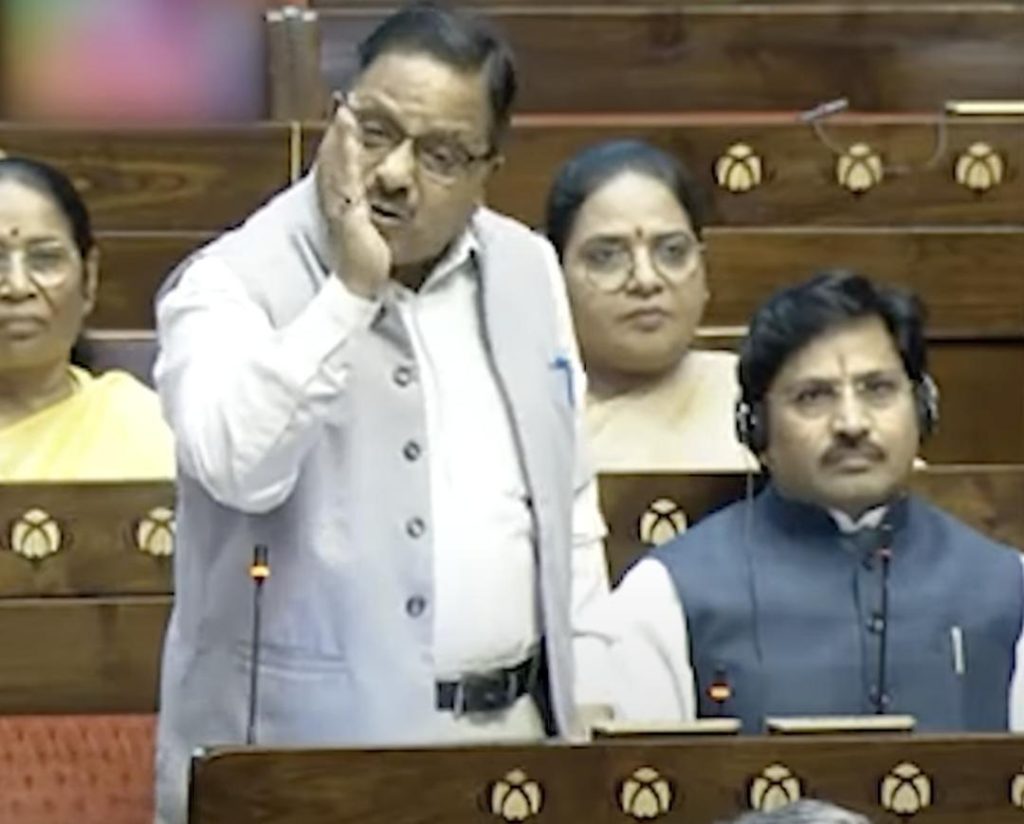
Title: Should I Read the Quran and Tell You What’s Written in It: BJP MP Radha Mohan Das on Waqf Bill
In the ongoing debate on the Waqf Bill, a BJP MP, Radha Mohan Das, has sparked controversy by suggesting that he should read the Quran and share its content with others. The statement was made during the discussion on the Waqf Bill in the Lok Sabha, where Das expressed his doubts about the properties owned by the Waqf Board, the Islamic religious and charitable endowment.
Das’s statement has raised eyebrows among many, with some criticizing him for his apparent lack of understanding of Islam and its religious texts. However, others have defended him, saying that his intention was to highlight the need for transparency and accountability in the management of Waqf properties.
So, what’s the big deal about the Quran? Is it a sacred book that should be revered and respected, or is it a text that can be picked apart and criticized? In this blog post, we’ll delve into the controversy surrounding Das’s statement and explore what the Quran actually says about property and charity.
The Waqf Bill: A Background
The Waqf Bill is a proposed legislation aimed at streamlining the management of Waqf properties, which are considered sacred by Muslims. The Waqf Board is responsible for managing these properties, which include mosques, madrasas, and other religious institutions. However, over the years, there have been allegations of mismanagement, corruption, and lack of transparency in the Board’s functioning.
Das’s Statement
During the debate on the Waqf Bill, Das asked, “Should I read the Quran and tell you what’s written in it?” He then went on to quote a verse from the Quran, claiming that it supports his argument about the need for written records of transactions. “The Quran says that even if one rupee is given to anyone, there should be a written record…And you say you have so many properties without a record,” he said, targeting the Waqf Board.
Das’s statement has been criticized by many, including Muslim leaders and scholars, who argue that he is misinterpreting the Quran and its teachings. They point out that the Quran is a sacred text that should be respected and revered, rather than used to support political agendas.
What Does the Quran Say?
So, what does the Quran actually say about property and charity? The Quran does emphasize the importance of written records in transactions, but this is not unique to Islam. Many other religions and cultures place great importance on written records as a means of ensuring transparency and accountability.
In the Quran, there are several verses that mention the importance of written records. For example, in Surah Al-Baqarah, Verse 282, it is written, “O ye who believe! When ye deal with each other, in transactions involving the exchange of goods, let the term be for the space of time, and let the writer be not weary, nor the scribe hindered (from writing), but let him write as soon as the party instructs, and let them fear the day on which there shall come unto them which they know not, nor shall they be dealt with unjustly, nor shall they be wronged.”
This verse emphasizes the importance of being clear and transparent in business transactions, and the need for written records to ensure fairness and justice. However, it is important to note that this verse is not specific to Waqf properties or Islamic charities, but rather is a general principle that applies to all transactions.
Another verse that is often cited in this context is Surah Al-Nisa’, Verse 6, which states, “And those who hoard gold and silver and spend it not in the Way of Allah, announce unto them a painful doom.” This verse is often interpreted as a warning against mismanaging one’s wealth and failing to use it for the greater good.
Conclusion
Das’s statement has sparked controversy, with some criticizing him for his apparent lack of understanding of Islam and its religious texts. However, others have defended him, saying that his intention was to highlight the need for transparency and accountability in the management of Waqf properties.
In conclusion, while the Quran does emphasize the importance of written records in transactions, it is important to understand the context and meaning of these verses. The Quran is a sacred text that should be respected and revered, rather than used to support political agendas.
Sources:
Note: The article is based on the video shared on YouTube and is not a direct quote of the Quran.






